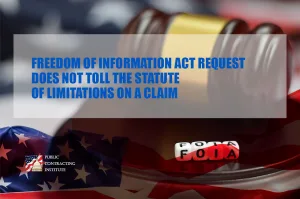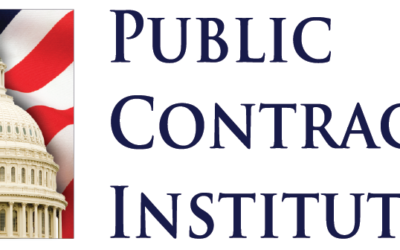A recent straightforward case at the Court involving a claim that the Army breached its duty of good faith and fair dealing, as well as its implied duty to cooperate and not hinder resulted in a dismissal because it was beyond the statute of limitations. J. Star Enterprises, Inc. v. United States, No. 23-013 (Fed. Cl. September 11, 2023). Star asserted that its Freedom of Information Act (“FOIA”) request tolled (extended) the statute of limitations.

The Army awarded Star a contract for drainage pipe installation at Ft. Hood Texas. Because of significant performance delays, the Army assessed liquidated damages on September 28, 2015. On September 30, 2015, the Army paid Star its final invoice, less the liquidated damages, and Star accepted payment on October 1, 2015. On November 24, 2021, six years, one month and 23 days after it accepted payment, Star submitted a certified claim to the Contracting Officer seeking return of the liquidated damages plus other compensation.
The relevant statute and regulatory provisions require that each claim by a contractor against the Federal Government relating to a contract and each claim by the Federal Government against a contractor relating to a contract, shall be submitted within 6 years after the accrual of the claim.
41 U.S.C. §7103(a)(4)(A). Accrual of a claim means the “date when all events that fix the alleged liability of either the Government or the contractor and permit assertion of the claim, were known or should have been known. For liability to be fixed, some injury must have occurred. However, monetary damages need not have been incurred.” FAR 33.201.
Star argued that its claim was timely filed because it submitted a FOIA request to the Government on November 3, 2015 and did not receive responsive documents until February 10, 2016, well within six years of submitting its claim to the Contracting Officer. Star stated that it was investigating its claim, but was precluded from doing so solely by the government.
The Court held that the FOIA request could not affect the dates when liability would have been fixed (Oct. 1, 2015) and could not affect the date for claim accrual. The court dismissed the case for failure to state a claim for which relief could be granted.
For other helpful suggestions on government contracting, visit:
Richard D. Lieberman’s FAR Consulting & Training at https://www.richarddlieberman.com/, and Mistakes in Government Contracting at https://richarddlieberman.wixsite.com/mistakes.



